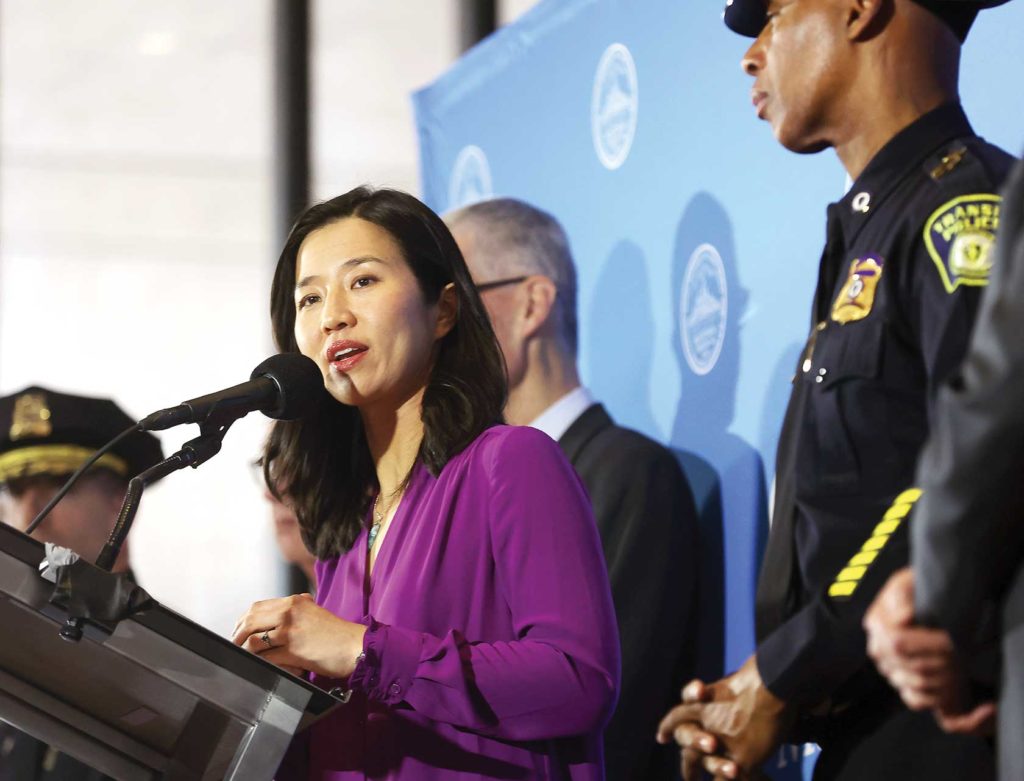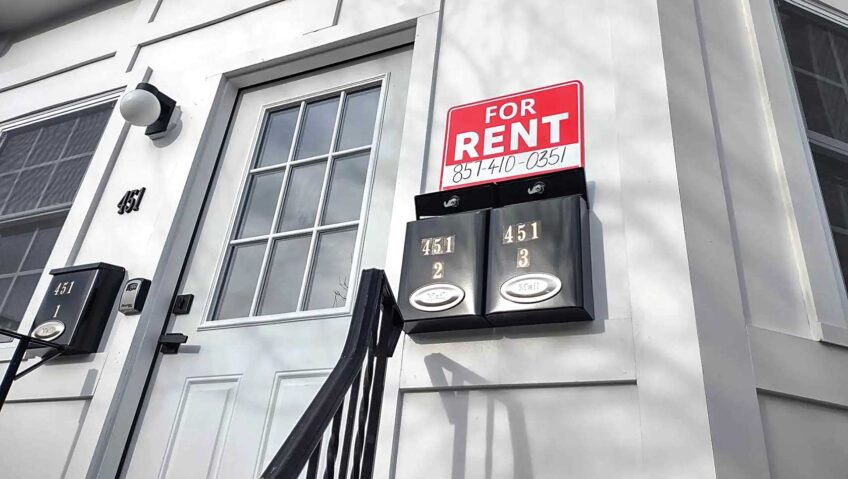
At City Hall last week, Mayor Michelle Wu unveiled her plan to mitigate worsening conditions at the intersection of Massachusetts Avenue and Melnea Cass Boulevard, which has in recent years become an open-air drug market where many struggling with homelessness and addiction have flocked. Dubbed a “warm weather plan,” the mayor’s 11-point strategy hopes to combat increased congregation as the weather warms up.
In conjunction, Wu has shared her long-term plans to “improve systems of care for unsheltered individuals impacted by substance use disorder,” through a decentralization of services and strengthened continuum of care model, including redesigning of the city’s shelters.
“As the weather warms, we are taking concrete steps to ensure safety and health. Boston is creating a continuum of care for individuals experiencing homelessness and substance use disorder, with pathways from living on the streets to permanent housing,” Wu said last week. “I’m grateful to all of our partners in public health and public safety working collaboratively to lower barriers and increase access to services while ensuring safe and healthy streets.”
Wu was joined in her announcement by health officials, including outgoing Mass and Cass Czar Dr. Monica Bharel and Boston Public Health Commission Executive Director Dr. Bisola Ojikutu, as well as city officials in charge of emergency response and housing. Notably, Lt. Peter Messina of the Boston Police Department’s Street Outreach Unit was among the officials present, as the mayor’s plan centers public safety and the clearing of encampments in the immediate future.
Messina said there would be an increased law enforcement presence in the area, strict enforcement of drug and human trafficking laws through arrests, and continued collaboration with the courts to provide diversion pathways for those struggling with mental health issues and substance use disorder. He added that the department will be making it known in coming weeks that BPD is cracking down.
“The most important aspect of the situation is a continued comprehensive public health, public safety and community approach. This continued collaboration sends a centralized message to individuals preying on victims of the opioid crisis that they cannot and will not continue to victimize people,” he said.
As for where displaced individuals will go, the mayor said the city will continue its strategy of moving those living on the streets around Mass and Cass to low-threshold transitional housing and shelter sites. The initial phase of this relocation began back in January, after which more than 145 individuals were able to be rehoused across six sites, according to city officials.
More low-threshold shelter space is planned, though it is unclear where that might be.
“We’re continuing the work of transforming the shelter system to bring more critical resources online, meet urgent needs and ensure that every person who needs support is able to access it,” Wu said at the May 24 announcement.
Additionally, to help struggling addicts access care and resources without creating a hub that attracts violence and crime, the city plans on opening new “day centers” outside of the neighborhood — a first step in the decentralization process.
Ojikutu said the sites will have harm reduction measures, case management assistance and help with legal issues and potentially some clinical medical care. She added that the city is currently looking for sites and has the funding ready to be spent.
“It’s certainly something that we’re going to move forward with,” Ojikutu said.
This aspect of the plan comes on the heels of the decision to not reopen the engagement center on Atkinson Street that has been the site of increased violence in recent weeks.
In the long term, the city hopes to create more permanent housing — Wu said Tuesday that there are 800 units of permanent supportive housing in the city’s pipeline, 300 of which are in construction. Additionally, her long term strategy includes repairing buildings on the currently shuttered Long Island recovery campus, though issues remain with the neighboring city of Quincy on rebuilding the bridge to access the site.
As for the continuum of care, the mayor hopes to expand the number of street team workers, nurses, mental health clinicians and recovery professionals working for the city, and to create job opportunities for those in need.
While the long-term strategy’s timeline is still unclear, the city says engagement sessions with community and stakeholder groups will continue.






